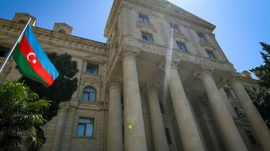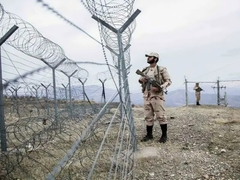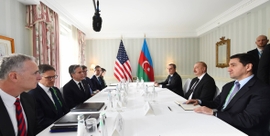Russia announced it is withdrawing from the Barents Euro-Arctic Council (BEAC), an organization to foster cooperation among countries in the Barents Sea area.
In a statement released on Monday, the Russian Foreign Ministry accused Western members of “effectively paralyzing” the council's activities since March 2022.
“The Finnish presidency failed to confirm the transfer of the BEAC presidency to Russia, scheduled for October 2023, in violation of the principle of rotation thus disrupting the necessary preparations,” the statement reads. “Under these circumstances, we are compelled to announce the withdrawal of the Russian Federation from the Barents Euro-Arctic Council.”
The history of cooperation in the Barents region dates back to 1993, comprising two levels: The intergovernmental BEAC and the interregional Barents Regional Council (BRC).
Since the Barents region was an area of military confrontation during the Cold War, the main premise was that close cooperation secures political long-term stability and reduces possible tensions.
Member countries of the BEAC include Denmark, Finland, Iceland, Norway, Russia, Sweden, and the European Commission, with the council's presidency rotating among Finland, Norway, Russia, and Sweden. Finland held the presidency for the 2021-2023 period.
Nikita Lipunov, an analyst at the Institute of International Studies of the Moscow State Institute of International Relations, viewed Russia's decision as a formalization of the status quo that had developed over the past year and a half.
“The BEAC itself is essentially dysfunctional, and cross-border and interregional cooperation between Russia and the Nordic countries has been effectively curtailed. By its decision to leave the format, Russia not only formalizes this situation but also sends a signal that it will not tolerate violation of its rights," TASS quoted Lipunov as saying on Monday.
However, Lipunov believes that Russia will continue to develop cooperation in the Arctic with countries outside the region, such as China and India, after quitting the BEAC. He further noted that China and India were among the non-regional states interested in the Arctic, and Russia had already engaged with them on Arctic-related matters.
The Barents region holds potential for hydrocarbon production, with two major offshore projects planned in the Russian part of the Barents Sea: the Prirazlomnoye oil field and the Shtokman gas field.
The Barents Sea, which is a part of the Arctic Ocean, plays a strategic role for Russia. Russia’s largest fleet, the Northern Fleet, which is based on the coast of the Kola Peninsula and has access to the North Atlantic via the Barents Sea for its surface ships and submarines, is preventing NATO from strengthening its presence in the Arctic.
The Arctic is increasingly becoming an area of geopolitical, geoeconomic and geoecological interest. Climate change is causing rapid warming and melting of ice in the Arctic, making raw materials in this region more accessible for economic exploitation and development. The competition over resources could place Russia and Western countries on a collision course.







 U.S. Secretary of State Antony Blinken reiterated Washington’s unwavering support for the ongoing peace process between Azerbaijan and Armenia in a...
U.S. Secretary of State Antony Blinken reiterated Washington’s unwavering support for the ongoing peace process between Azerbaijan and Armenia in a...
 The Iranian and Cuban transport ministers have discussed expanding maritime and air transportation cooperation.
The Iranian and Cuban transport ministers have discussed expanding maritime and air transportation cooperation.
 Iran is moving to fortify its eastern border with Afghanistan in a bid to fight illegal migration and drug trafficking, along with enhancing security.
Iran is moving to fortify its eastern border with Afghanistan in a bid to fight illegal migration and drug trafficking, along with enhancing security.
 Kyrgyzstan has joined the extensive reconstruction efforts in the Karabakh region of Azerbaijan, after a series of mega initiatives were launched b...
Kyrgyzstan has joined the extensive reconstruction efforts in the Karabakh region of Azerbaijan, after a series of mega initiatives were launched b...



